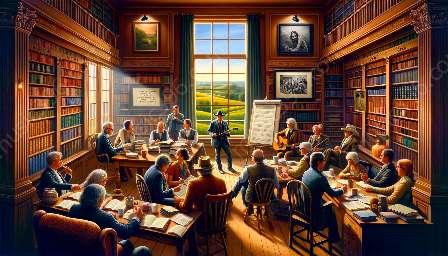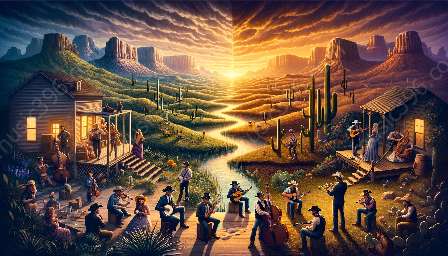Country music has long been a powerful force in shaping religious beliefs and social norms, both promoting and challenging traditional perspectives. From its roots in gospel and spirituals to contemporary expressions of faith, country music continues to influence and impact society in profound ways.
The Role of Country Music in Promoting Religious Beliefs
Country music has historically been closely intertwined with religious themes, often serving as a platform to promote and reinforce traditional Christian values. Songs such as 'Amazing Grace' and 'I Saw the Light' have become iconic in the country music canon, promoting themes of faith, redemption, and salvation.
Moreover, many country music artists openly express their religious beliefs in their music and public personas, which can serve as a form of evangelism and inspiration for their fans. The genre has provided a platform for artists to openly share their faith and encourage listeners to embrace their religious convictions.
The Impact of Country Music on Religious Communities
Country music has also played a significant role in strengthening religious communities. The music serves as a unifying force, bringing together individuals who share common beliefs and values. It provides a soundtrack for worship and communal gatherings, fostering a sense of belonging and solidarity among believers.
The Evolution of Religious Themes in Country Music
While traditional religious themes have been central to the genre, country music has also evolved to reflect a more diverse and inclusive portrayal of faith. Artists have explored themes of doubt, struggle, and personal spirituality, challenging conventional religious norms and offering a more nuanced perspective on faith.
The Challenge of Religious Beliefs in Country Music
Despite its promotion of religious beliefs, country music also serves as a platform for artists to challenge traditional perspectives and provoke critical discourse surrounding faith and spirituality. Some artists have used their music to question organized religion, confront hypocrisy within religious institutions, and advocate for more progressive and inclusive interpretations of faith.
Moreover, country music has been a vehicle for artists to address social justice issues, including those that intersect with religious beliefs. Songs have addressed topics such as poverty, equality, and compassion, challenging listeners to reconsider their perspectives on faith and societal responsibilities.
The Impact on Society
Country music's exploration of challenging religious beliefs has contributed to broader societal conversations about the role of religion in contemporary life. It has prompted listeners to engage in introspection, empathy, and understanding of diverse viewpoints, ultimately shaping the cultural landscape and influencing social attitudes toward spirituality and religion.
Conclusion
The influence of country music on religious beliefs is multifaceted, encompassing both promotion and challenge. As a cultural phenomenon, country music continues to shape the discourse around faith and spirituality, influencing religious communities, social attitudes, and individual perspectives. By embracing diverse expressions of religious belief, country music reflects the dynamic interplay between tradition and innovation, exemplifying the enduring impact of this genre on society.























